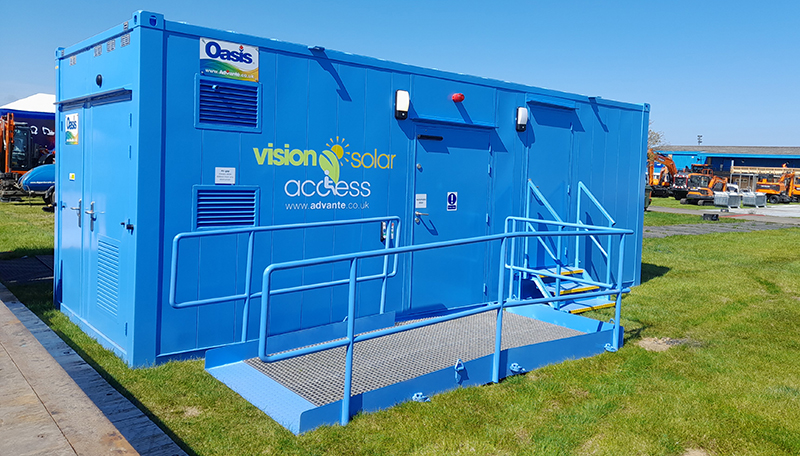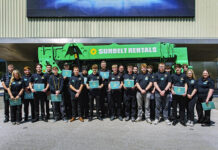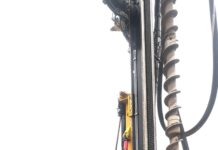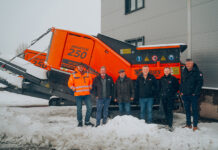ADVANTE, the UK-based manufacturer of the Oasis ‘instant start’ self-contained welfare units, has launched the Vision Solar Access toilet block with DDA-compliant facilities.
The move has been described as a positive step on the road to greater on-site accessibility.
The toilet block was launched at PlantWorX 2023 by Jackie Maginnis, CEO of the MPBA (Modular Portable Buildings Association).
The unit comprises a two-bay toilet area with two urinals accessed by a short staircase and a single full access toilet with ramp and automatic door system, compliant with Building Regulations for disabled access.
Stan Chapman, R&D director at Advante, said, “This unique toilet facility was developed in response to demand from customers looking to provide accessible facilities for wheelchair users. We held in-depth discussions on what clients required from a disabled access unit to ensure we understood fully the needs and challenges to be met.
“The final unit design took its inspiration from an already successful model in our range in meeting all access needs, plus we built on our expertise in utilising renewable energy.”
The innovation follows the release of the Vision Solar toilet block recently, as part of Advante’s commitment to helping sites achieve net zero. Like Vision Solar, the new Vision Solar Access is powered by a solar hybrid system. The toilet block is space heated to ensure a comfortable environment for users in the colder months.
The Vision Solar Access unit is designed for any site that requires a fully accessible toilet unit, including construction sites and existing buildings undergoing refurbishment.
The system is powered by Oasis solar hybrid technology, which delivers up to 100% renewable energy to power the electrical loads in the unit silently, including lighting, hot water and hand dryers, backed up with a 6kVa LPG generator.
Advanté pioneered the design and production of its Oasis welfare units for main contractors after health and safety requirements, introduced in 1998, meant that all construction sites had to provide hot and cold running water before work could start.












